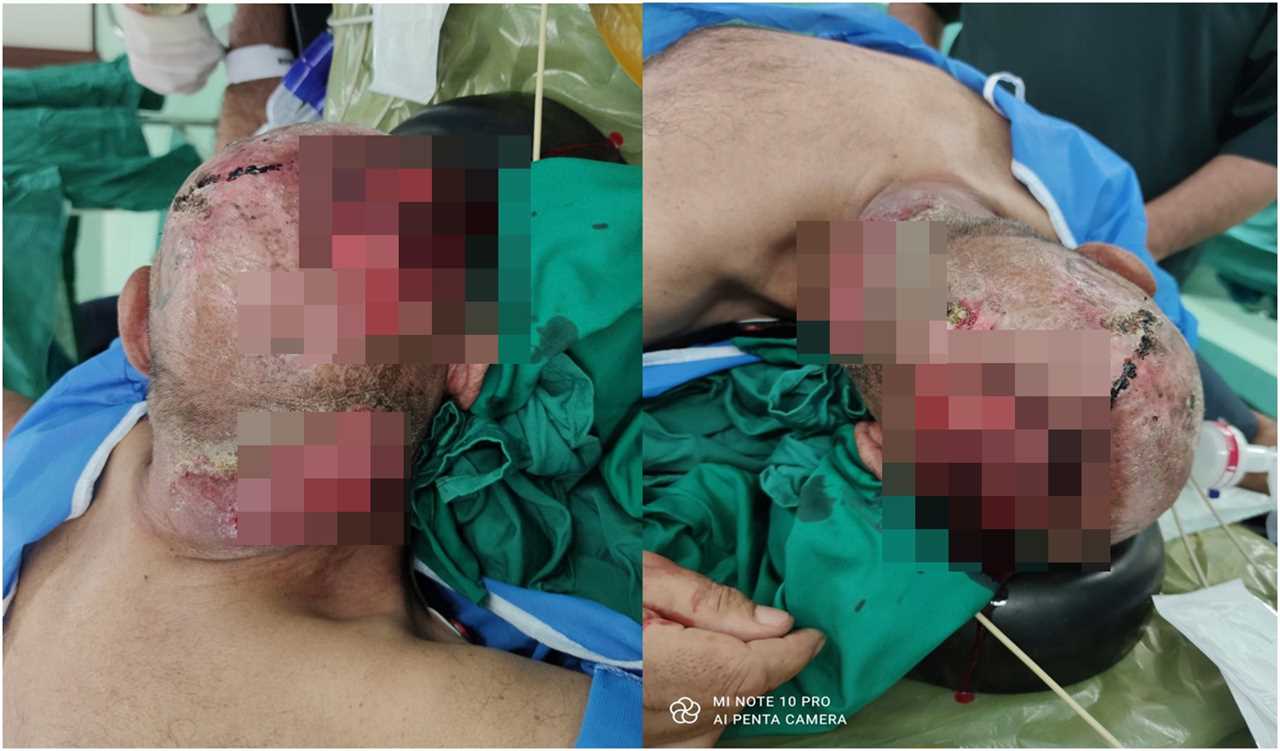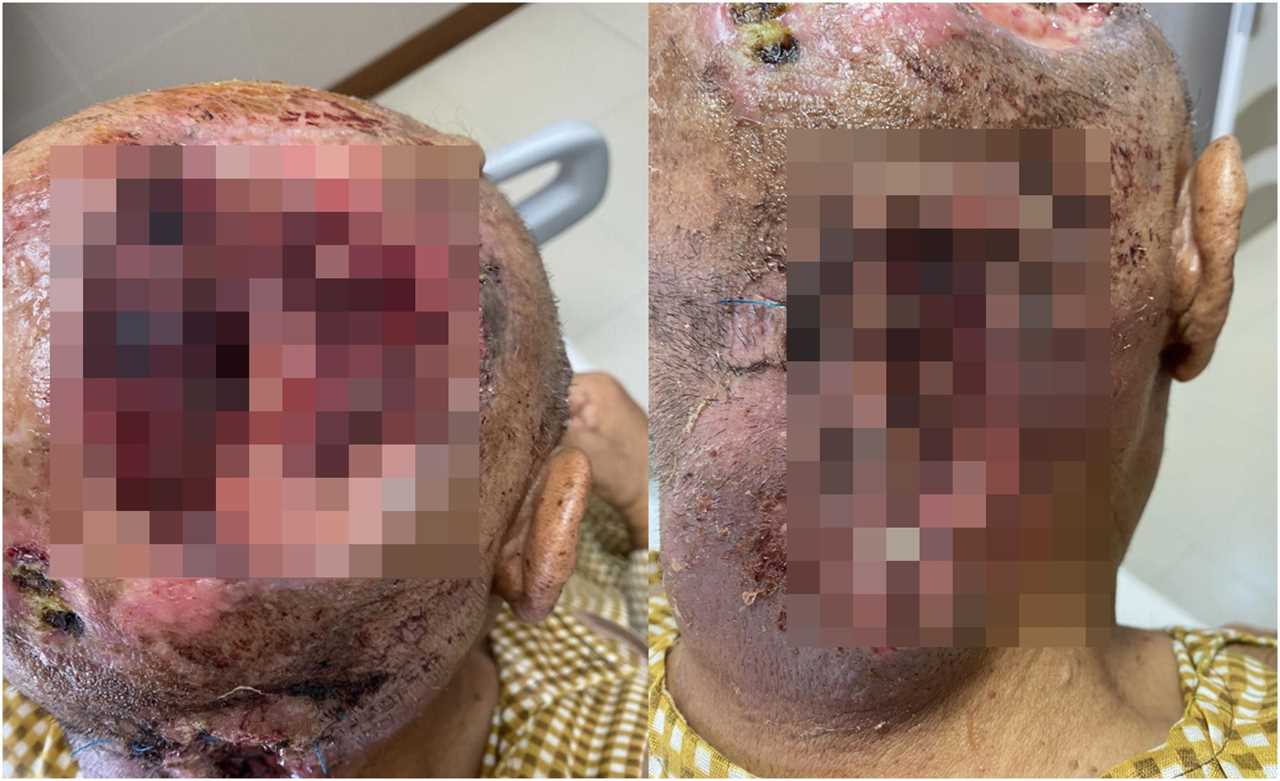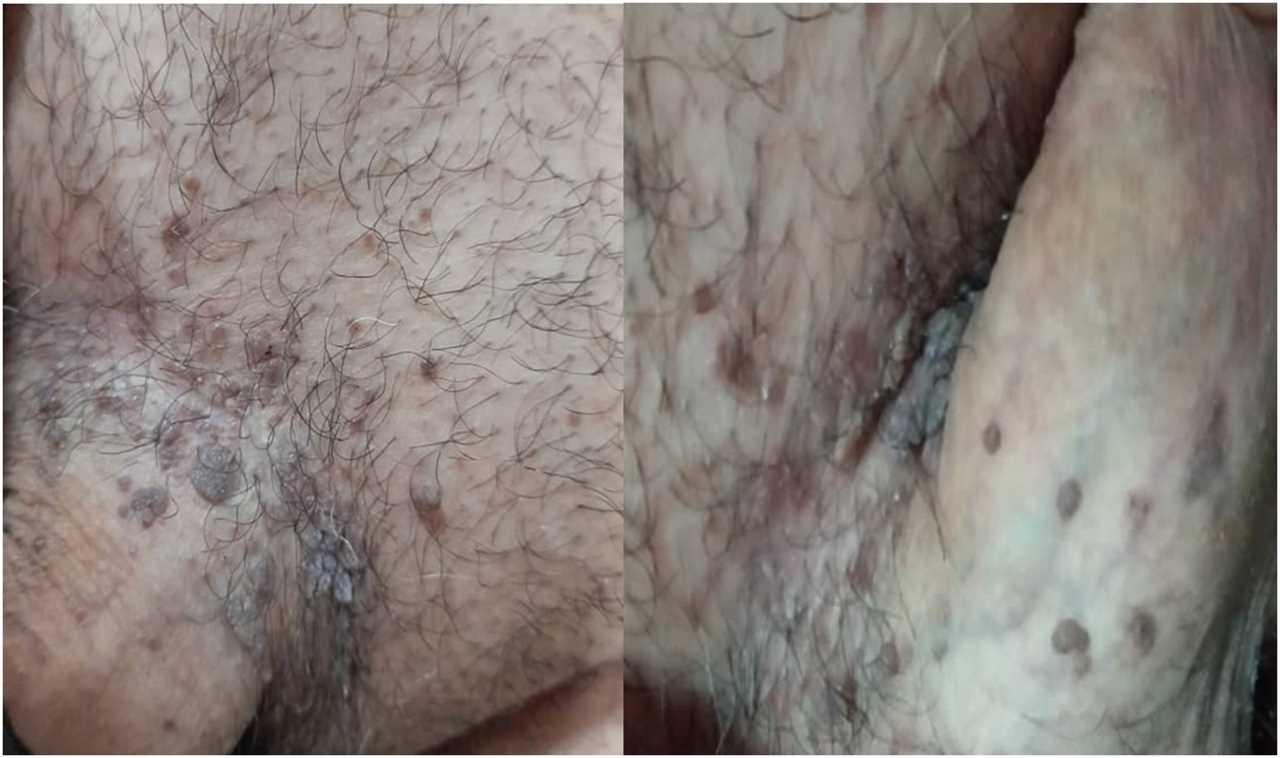DOCTORS have shared shocking photos of a man’s scalp destroyed by cancer due to a common virus passed through sex.
The poor man had “extensive bleeding masses on his head and neck” which surgeons worked tirelessly to try and fix.


The 57-year-old, from Iran, had head and neck cancer starting in the skin of his scalp.
Head and neck cancer is the sixth most common globally, and is usually the result of excessive smoking or drinking alcohol.
But there are warnings that cases of HNSCC are on the rise as a result of the human papillomavirus (HPV), particularly in young people.
HPV is spread through sexual contact, including without penetrative sex.
Most adults will be infected with HPV at some point in their life, and their body will flush it out within a couple of years without causing symptoms.
However, there are some risky types of HPV that cause genital warts and cancer.
While most people are familiar with HPV as a leading cause of cervical cancer, it can also lead to vulval, vaginal, anal and penis cancer.
The Iranian team warned that HPV causes “a more severe and resistant” type of head and neck cancer “with poor treatment outcomes”.
Case report
The man reported in the International Journal of Surgery Case Reports was seen at Omid Hospital in Urmia city, West Azerbaijan, Iran.
He complained of bleeding and discharging pus from painless lumps on his head and neck.
Dr Naser Parizad and team wrote: “He declared that he had noticed small sores on his head and neck five years ago and overlooked them until they became more outstanding and prominent.”
When the male went to see a specialist, he was diagnosed with cancer starting in the squamous cells.
These cells are found in the outer layer of skin and in the lining of the nose, mouth and throat.
The patient was treated with radiotherapy and chemotherapy, and then surgeons removed the masses on his skin.
But the sores reappeared two years later – and once again, the man ignored them because they didn’t hurt and he was struggling with money.
It got to the point, in October 2021, that “the masses had spread significantly and become infectious with obvious bleeding”.
The man had a four-hour operation to scoop out all the cancerous tissue, which left his scalp in pieces.
HNSCC can spread to other parts of the body, and the man’s disease had spread to his lymph nodes.
Doctors were left with “limited choices for curing him”, partially due to him delaying treatment for so long.
During their examinations, they had noticed the man had severe genital warts – signalling HPV infection.
After speaking to the patient, they determined that he “previously had dangerous and unprotected sexual relationships” – but did not expand on what this entailed.
HPV can be spread with any skin-to-skin contact of the genitals, and does not necessarily require risky sexual behaviour.
HPV risk
Cancers of the head and neck are usually a result of alcohol and tobacco use – but the man claimed to use neither.
HPV infection is another risk factor for the disease, and “accounts for the increasing incidence of HNSCC in younger people”, MedlinePlus reported.
And the Iranian medics said people who are HPV positive should be monitored because they are at risk of the disease.
But most of the time, HPV does not cause any problems, the NHS says, and it does not need treatment.
There is no test for HPV, but women find out if they have it as part of the cervical cancer screening programme.
Some sexual health clinics may offer anal screening to men with a higher risk of developing anal cancer, such as gay men.
Read More on Trending In The News
You cannot fully protect yourself against HPV, but there are things that can help, the NHS says.
These are:
- Condoms – they can help protect you against HPV, but they do not cover all the skin around your genitals, so you’re not fully protected.
- The HPV vaccine – this protects against the types of HPV that cause most cases of genital warts and cervical cancer, as well as some other cancers. It is given to schoolchildren.









